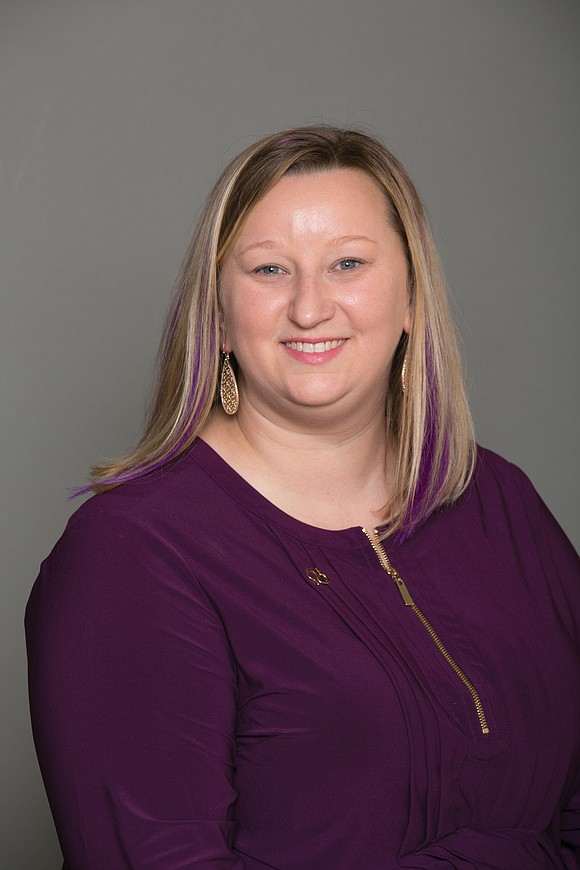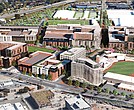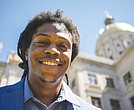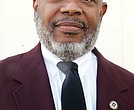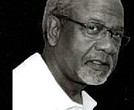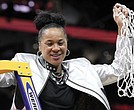Personality: Jessica N. Thomas
Spotlight on chair of Alzheimer’s Association 2018 Walk to End Alzheimers
10/25/2018, 6 a.m.
Want to go?
What: 2018 Walk to End Alzheimer’s.
When: Saturday, Nov. 3, with registration at 8:30 a.m., ceremony at 9:30 a.m. and walk at 10 a.m.
Where: Innsbrook, 4600 Cox Road.
Details: http://act.alz.or...
On the first Saturday in November, 3,000 people are expected to gather in the river city to take a stand – and a walk – against Alzheimer’s disease.
That day is empowering, emotional and uplifting. It celebrates families and professional caregivers who are fighting to end Alzheimer’s.
This is how Jessica Thomas, chair of the Alzheimer’s Association 2018 Walk to End Alzheimer’s, views the Richmond event scheduled for Nov. 3.
The Alzheimer’s Association is a nonprofit organization that annually hosts more than 600 walks in communities nationwide. This is the world’s largest event to raise awareness and funds for Alzheimer’s care, support and research.
Alzheimer’s disease is the sixth leading cause of death in the United States that cannot be prevented, cured or slowed.
One in three seniors dies with Alzheimer’s or another form of dementia. Almost two-thirds of Americans with Alzheimer’s disease are women.
Ms. Thomas, as director of operations for Always Best Care Senior Services, became involved with the Richmond event when their national team sponsored the Alzheimer’s walk.
“This was our charity of choice,” Ms. Thomas says. “I started as a walker with my company’s team. That’s how my engagement kicked off.”
Through the organization, she has been able to attend educational seminars and go to national conferences where she has heard the latest information on research and studies being done as well as the progress toward curing Alzheimer’s.
Beyond that, one of the most important things she has been exposed to is getting to know family caregivers a lot better. There are an estimated 16 million caregivers of people living with Alzheimer’s and other forms of dementia in the United States.
As caregivers, their role is to advocate for the patient, make sure they are being seen by a neurologist for treatment options and ensure patients reach proper resources.
“A family care giver is a husband, wife, daughter or other family member or anyone caring for their loved one,” she explains.
“I get to hear their ‘get in the weeds’ stories – what they do on a daily basis to care for their Alzheimer’s patient. That has helped me understand the disease a little bit better and how it affects people.”
The realities of Alzheimer’s can be heartbreaking, she says.
“There are children and grandchildren with parents and grandparents with Alzheimer’s that don’t know who they are,” Ms. Thomas said in a halting voice during a Free Press interview.
“There are daughters who dance at their wedding with their dads and their dads don’t know who they are dancing with.”
However, on the bright side, the Alzheimer’s Association is among the largest fundraisers for Alzheimer’s research.
“The association is pushing lots and lots of dollars to find a cure. We want our first survivor. We no longer want just care and support. We want to know how to end this disease,” Ms. Thomas says.
“Our researchers and doctors truly believe that we are right on the cusp of doing that, but they have to have the funding to do so.”
The annual 3-mile Walk to End Alzheimer’s helps boost those funding efforts, but it is a large undertaking. With that, Ms. Thomas says, “There is a need for a very large group of volunteers to come out to support the event.” The volunteers behind the scenes make sure the day runs seamlessly.
“There is walking route entertainment, which includes a lot of different entertainment groups – bands, musicians, cheerleading and step squads,” the event chairs says. “We need those people to encourage the runners and walkers and uplift the day.
“Most importantly, there is an advocacy aspect to the walk. It is really important walkers understand what we are advocating to the government and what type of research, funding and support we need for Alzheimer’s.
“The emotional effects of seeing a loved one going through the progressive stages of Alzheimer’s is a huge drain on family caregivers.
“The biggest thing we, at the Alzheimer’s Association, have to do is continuously educate our caregivers and let them know they are not alone.”
Meet this week’s Personality and a strong advocate for Alzheimer’s disease awareness and research, Jessica Thomas:
No. 1 volunteer position: Chair, Alzheimer’s Association Walk to End Alzheimer’s.
Occupation: Director of operations, Always Best Care Senior Services.
Date and place of birth: Dec. 28, 1985, in Richmond.
Current residence: Winterpock area of Chesterfield County.
Education: Bachelor’s of science in therapeutic recreation from Longwood University.
Family: My husband, Daniel, the best dog ever, Molly, and five amazing nieces.
Walk to End Alzheimer’s goal: Our goal is to end Alzheimer’s and to see our first survivor.
Financial goal: $600,000.
What it’ll take to pull it off: We need the community’s continued support in doing so. We have a committee of 40+ volunteers that have been diligently working to plan for this event, spread the word and raise funds. We need to continue to tell people about the Walk, continue to fundraise and continue meeting with company leaders. I’ve learned that we just have to tell people what we are doing, and ask them to support us.
How I’ll feel when it’s over: Energized! Energized to keep fighting for those that can’t fight. Energized to share the support that was displayed to all of my employees and family caregivers fighting this fight. This event always re-energizes me. It’s the reason I fight all year long. The community comes together in such a beautiful way.
Expected number of walkers: 3,000.
Mission of Alzheimer’s Association of Greater Richmond: Eliminate Alzheimer’s disease through the advancement of research; to provide and enhance care and support for all affected; and to reduce the risk of dementia through the promotion of brain health.
Services association provides: Care consultation to help with care planning and coping; community education and caregiver training; support groups; safety programs and trial match to identify clinical studies.
Importance of family support: Family support is essential as often the family is the first to identify the symptoms of Alzheimer’s and family members become caregivers to those diagnoses.
Foremost challenge facing underserved areas: The biggest challenge is educating the community about our resources and having them make that first contact with the Alzheimer’s Association.
What needs to be done: We have to continue to educate the community about the resources and support the Alzheimer’s Association provides to our community.
What is a brain healthy lifestyle: Participating in regular physical activity, staying socially engaged and maintaining good heart health.
How I start the day: I’m not much of a morning person. I tend to keep to a full schedule and task list to keep me working through my goals of the day. I schedule everything, work and personal, or it just doesn’t fit.
The three words that best describe me: Leader. Volunteer. Go-getter.
Best late-night snack: Popsicles.
If I had more time, I would: Travel and explore other cultures.
A quote that I am most inspired by: “Be the change you wish to see in the world.” – Mahatma Gandhi.
The person who influenced me the most: I’ve had a lot of people influence my life, but my grandparents have always set the standard for me.
Book that influenced me the most: “A Child Called It” by Dave Pelzer. I read this book when I was in high school and for some reason it spoke to me about dreams and ambitions.
What I’m reading now: I am an avid #BTeam member, so I am reading “Fail Until You Don’t. Fight. Grind. Repeat.” by Bobby Bones.
Next goal: Become a mom.

